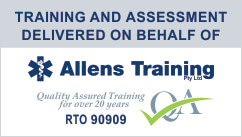Don’t Risk a Heart Attack – Prevention V’s Cure
State of Aussie men’s health
- Have a regular GP;
- Have an annual check-up with your GP;
- Know your body and what is normal for you;
- Promptly check out any changes in your body with your GP; and
- Know the health risks for your age group, and what to do to reduce them.
Health check
Your doctor can play a significant part in helping you to monitor your health through the ages by reviewing, checking and testing the following:
- Family history
- Height and weight
- Blood pressure
- Skin cancer check
- Flu shot yearly
- Pneumovax 5-yearly
- Tetanus 10-yearly
- Blood cholesterol and fat levels
- Blood glucose levels
If there is a reason to delve a bit deeper, there are some further tests that may or may not be warranted:
Research has shown that up to 80 per cent of cases of coronary heart disease, 90 per cent of type 2 diabetes cases and up to half of all cancers can be avoided by changing to a healthier diet, increasing physical activity, maintaining a healthy body weight and stopping smoking.
Now, before you flick the page thinking you are going to be told to ban beer, or to swap meat pies for carrots and lentils (although they are good for you) or to switch off the TV and take up marathon running, don’t worry, you’re not about to be lectured – just informed. A healthy lifestyle is all about choices, finding the right balance between what you put into your body, what you do with your body and – perhaps most importantly – enjoying it.
The three main ingredients required to lead a healthy lifestyle include:
- 1. Eating a wide variety of nutritious foods
- 2. Participating in physical activity and
- 3. Maintaining a healthy weight.
If you also cut out smoking and go easy on alcohol, you have made it. Right now you might be thinking of how you have neglected your health over the years and you may even be concerned that you have left your run a little too late. The good news it is it never too late to adopt healthy lifestyle habits.
